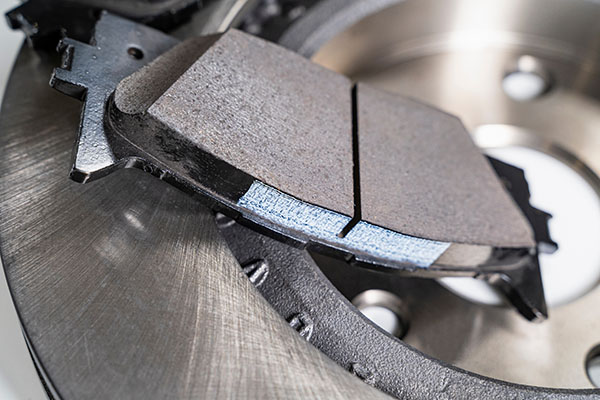
Welcome to the world of stopping power, where not all brake pads are created equal. Yes, that means that brake pads are split into different types with distinctive characteristics. Some perform well, and others last forever - let's take a look and determine if you need a new set of brake pads!
Semi-Metallic Brake Pads
These are the workhorses of the brake pad world. Composed of a blend of metals, including copper, iron, and steel, they offer excellent stopping power and durability. They perform well under a variety of conditions but tend to produce more dust and can be noisier than other types.
Organic Brake Pads
For the eco-conscious driver, organic brake pads might be the way to go. Made from natural materials like glass and rubber, they are known for their quiet operation and low dust production. However, they can wear out faster and might not offer the same performance as their metallic counterparts.
Ceramic Brake Pads
If you crave the best of both worlds – top-notch performance and reduced noise and dust – ceramic brake pads are the answer. Crafted from ceramic fibers, non-ferrous fillers, and bonding agents, they deliver exceptional stopping power without the drawbacks of dust and noise. They're often the choice for luxury and high-performance vehicles.
Low-Metallic NAO Brake Pads
These pads find the balance between semi-metallic and organic pads. They contain less metal than semi-metallic pads but offer improved performance and heat dissipation compared to organic ones. They are a solid choice for everyday driving.
How Do They Differ?
Stopping Power
Semi-metallic and ceramic pads lead the pack in stopping power, making them ideal for heavy-duty or performance-oriented applications. Organic and low-metallic pads may excel in other areas but might not match their stopping capabilities.
Noise and Dust
If a quiet, clean ride is your priority, organic and ceramic pads shine. They generate minimal noise and dust, keeping your wheels and brakes cleaner for longer periods.
Durability
Semi-metallic pads are known for their longevity, making them suitable for vehicles that undergo intense use. On the other hand, organic pads, while quieter, may require more frequent replacement.
Price
Your budget plays a crucial role in your brake pad choice. Organic pads tend to be budget-friendly, while ceramic pads often come with a higher price tag.
Are you having issues with your brake pads? Well, if that's the case, D&E Auto Repair has you covered. There is nothing more dangerous than driving with bad brakes, so make sure to address the issues ASAP!